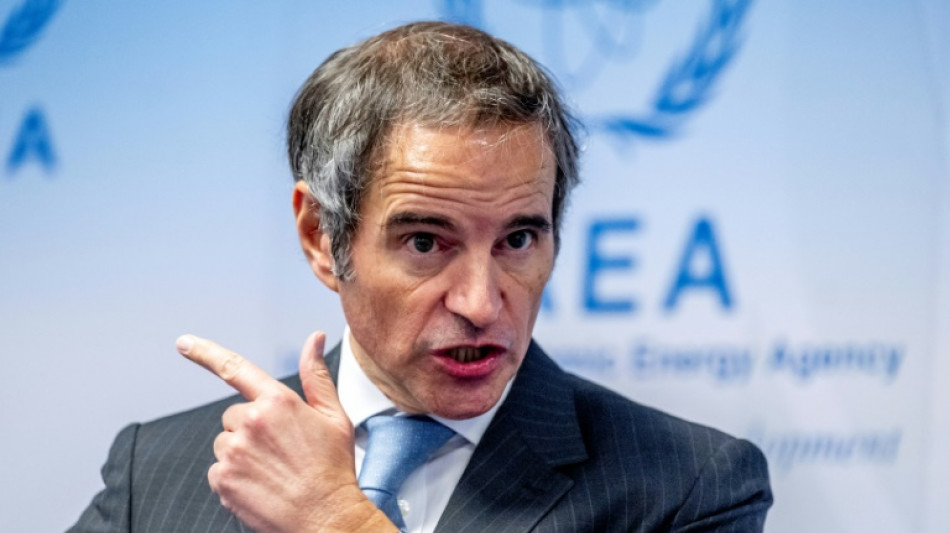

UN nuclear watchdog chief to travel to Iran on Saturday
The head of the Vienna-based International Atomic Energy Agency, the UN nuclear watchdog, will travel to Iran on Saturday "for meetings with senior Iranian officials", the IAEA said Thursday.
Director General Rafael Grossi will then hold a press conference on his return to Vienna, an agency spokesman said.
The announcement comes a day after Grossi vowed that the IAEA would "never abandon" its attempts to get Iran to clarify the previous presence of nuclear material at several undeclared sites there.
Iran has said the closure of the probe is necessary in order to clinch a deal to revive the 2015 deal with world powers on its nuclear programme.
The talks on the deal taking place in Vienna are widely seen as being at a crunch point, with the next few days key to their success or failure.
The 2015 deal began unravelling when former US president Donald Trump withdrew from it in 2018 and re-imposed sanctions, prompting Iran to start disregarding the limits on its nuclear activity laid down in the agreement.
Diplomats from Britain, China, France, Germany, Iran and Russia restarted the talks in late November to revive the accord, also known as the JCPOA or Joint Comprehensive Plan of Action.
The US has been taking part indirectly.
- Growing stockpile -
The IAEA has been pressing Tehran for several years for explanations regarding indications that nuclear material was previously present at four different locations in Iran.
While much of the activity concerned is thought to date back to the early 2000s, sources say that one of the sites, in the Turquzabad district of Tehran, may have been used for storing uranium as late as the end of 2018.
Israel fears Iran is seeking to obtain nuclear weapons, a charge Tehran denies.
On Thursday, Israeli Prime Minister Naftali Bennett spoke with Grossi to state his country's stance on the Vienna talks, "as well as on the open cases in the IAEA that deal with the Iranian weapons programme."
Bennett stressed "Israel's expectation that the IAEA will act as a professional and impartial supervisory body," a statement from his office read.
On Wednesday, Bennett said that an agreement enabling Iran to "install centrifuges on a broad scale within a few years" would be "unacceptable" to Israel, stressing the Jewish state would "know how to defend itself and ensure both its security and its future."
Also on Thursday the IAEA issued a report in which it estimated that Iran's stockpile of enriched uranium stood at 3,197.1 kilograms (7,033.62 pounds), up from 2,489.7 kgs in November.
One of the stipulations of the 2015 deal was that Iran was not allowed to enrich uranium above 3.67 percent, but this is one of the limits Iran has exceeded.
Thursday's IAEA report estimated the stockpile of uranium enriched to 20 percent at 182.1 kgs (up from 113.8 kgs in November) and that of uranium enriched up to 60 percent at 33.2 kgs (up from 17.7 kgs).
Military-grade levels are around 90 percent.
(R.Dupont--LPdF)




